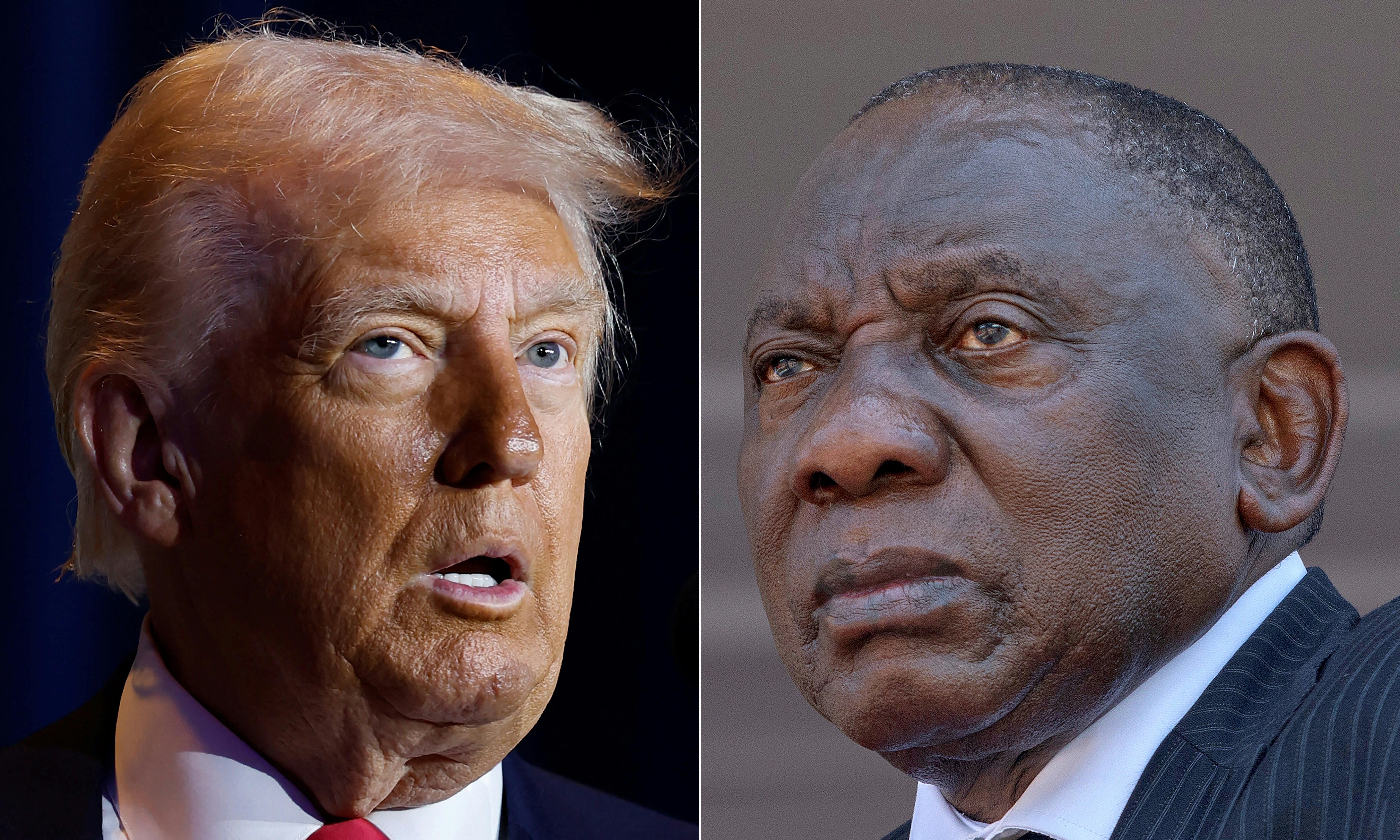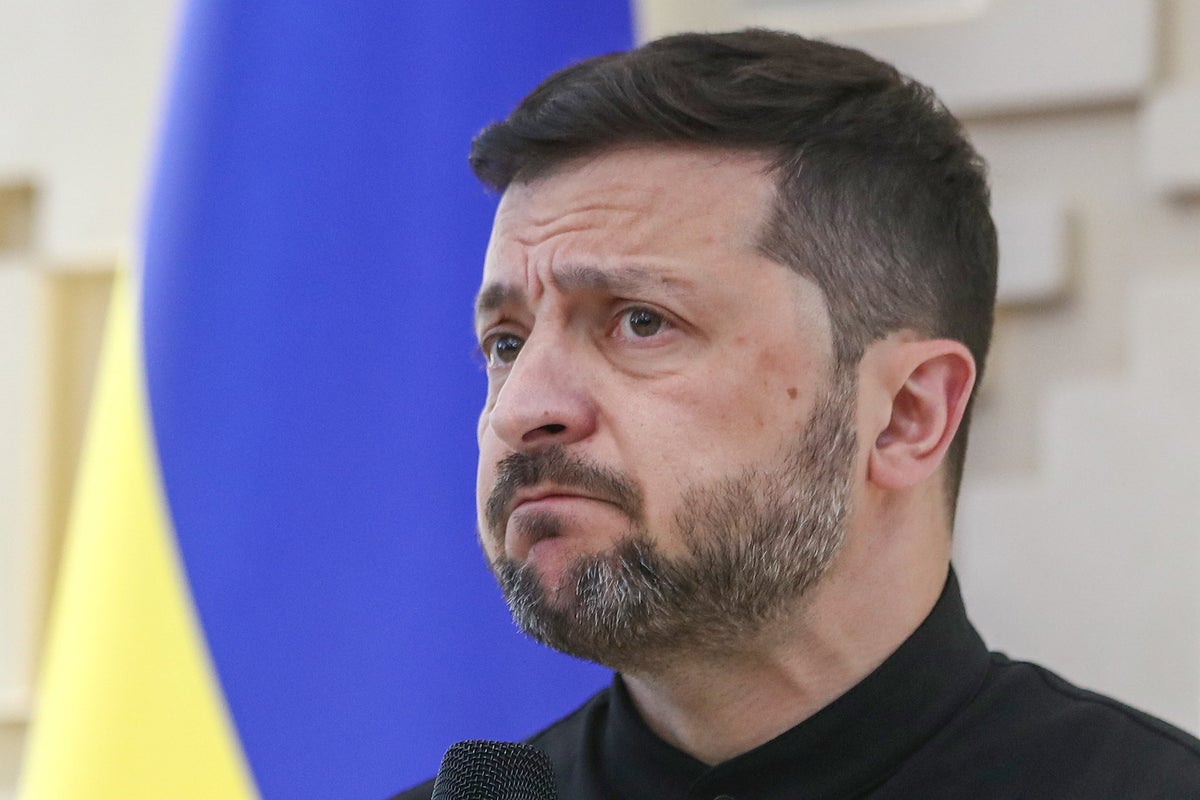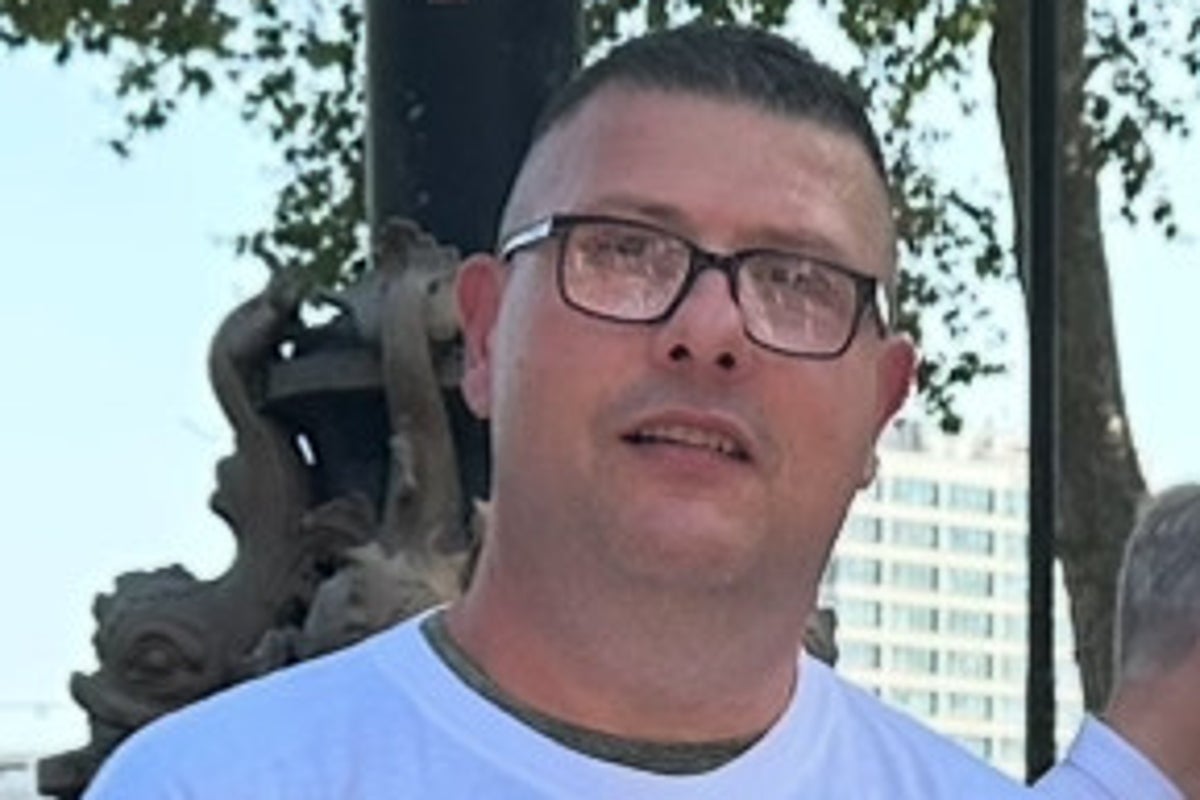ARTICLE AD BOX
Donald Trump and South Africa’s President Cyril Ramaphosa will meet at the White House next week.
The meeting comes during a period of deep tension between the two countries, including over the Trump administration’s decision to fast-track Afrikaner farmers from South Africa for refugee status on claims the white minority is facing a “genocide,” which South Africa disputes.
Ramaphosa’s office said the meeting “provides a platform to reset the strategic relations between the two countries."
Trump on Monday reiterated his claims that Afrikaners are facing a “genocide” and losing property in South Africa, echoing claims from South Africa-born White House advisor Elon Musk that South Africa has “openly racist” land laws and parties “actively promoting white genocide.”
“It’s a genocide that’s taking place that you people don’t want to write about,” Trump told reporters on Monday, adding, “White farmers are being brutally killed and their land is being confiscated in South Africa.”
The comment likely referenced South Africa’s recently enacted Expropriation Act, which allows the government to seize certain lands without compensation in some circumstances. Ramaphosa said in February that no such seizures have taken place yet, and that the law is similar to provisions in the U.S.

Experts say there’s little evidence of a genocide in South Africa against white farmers, who own roughly 70 percent of commercial farmland despite making up about 7 percent of the population, a legacy of the country’s apartheid past.
Between April 2020 and March 225, of the 225 people reported killed on farms, 53 were farmers, who are usually white, and about 100 were workers, who are typically Black, according to a New York Times analysis.
Fewer than 150 attacks involving farmers occurred during the entirety of 2023, according to the Afrikaaner political group AfriForum, representing a small share of violent crime in a country with one of the highest murder rates per capita in the world, logging over 19,000 murders between January and September 2024.
South Africa’s government has said that far from being under attack, Afrikaner farmers are "amongst the most economically privileged,” though they still face violence as part of the country’s larger crime problem.
On Monday, the first group of Afrikaner refugees arrived in the U.S. on a government-chartered flight, where they were welcomed by senior State Department officials, even as the Trump administration has largely cut off refugee resettlement from other nations.
Ramaphosa has criticized both the individuals leaving and the U.S. government over the refugee program, calling the Afrikaners “cowardly” for leaving and arguing they do not fit the definition of refugees because they do not have to leave the country “out of fear of political persecution, religious persecution.”
Earlier this year, Solidarity, a South African trade union that represents hundreds of thousands of Afrikaner families, said it doesn’t agree with the majority’s land use goals, but said “repatriation of Afrikaners as refugees is not a solution for us.”
White House deputy chief of staff Stephen Miller told reporters on Friday the initial arrivals form part of a “much larger-scale relocation effort” for the European-descended Afrikaners, whose treatment in South Africa "fits the textbook definition of why the refugee program was created.”
In February, Trump signed an executive order establishing the refugee program and cutting off all U.S. funding to South Africa, much of which goes to fighting HIV/AIDS.
The order criticized South Africa for several recent policies, including the country's filing genocide charges against Israel over its war in Gaza. The White House also claimed the recently passed land use law was driving “disproportionate violence” against white farmers, many of whom are descended from colonial settlers.
Critics of the Trump administration argue the refugee policy fits into the president’s long history of attacking Black and brown immigrants, while speaking favorably about immigration and immigrants from largely white European countries and communities.
“When it comes to race and immigration issues, the Trump administration is about as subtle as an air raid,” America's Voice executive director Vanessa Cárdenas recently said in a statement to The Independent.
“While they single out white Afrikaners for special treatment and resettlement, they falsely slander Black and brown refugees and immigrants as dangerous threats and ‘invaders’ — including those who have been vetted with background checks — despite all of the statistical evidence to the contrary,” she added.









 English (US) ·
English (US) ·